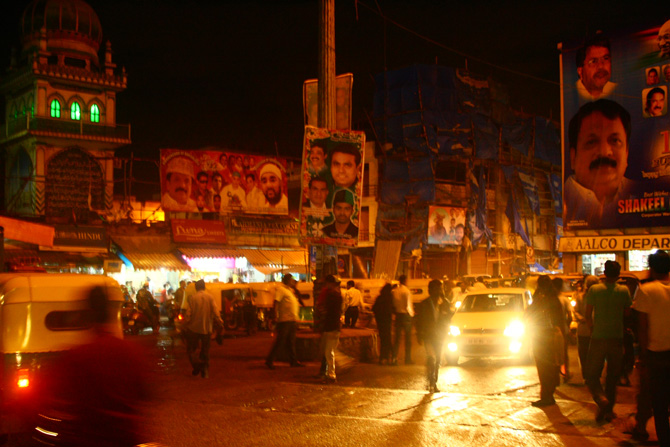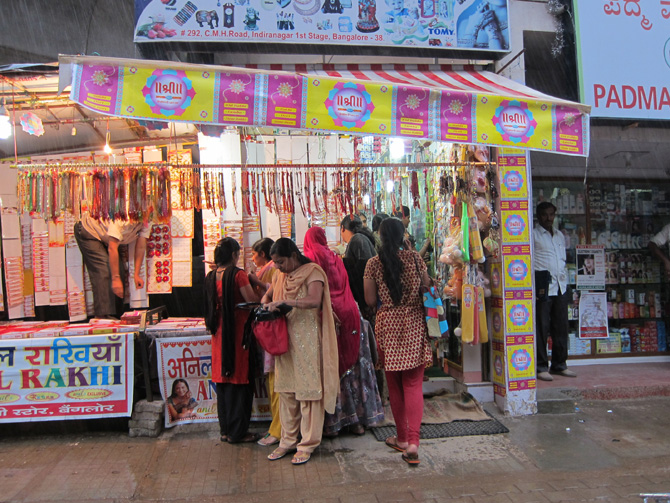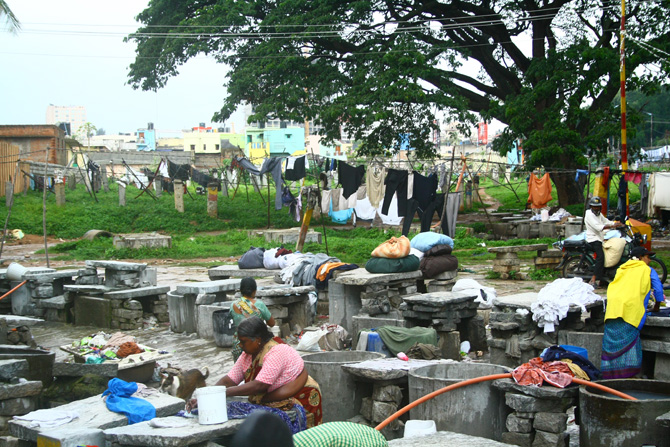Bringing the energy to India
Hi, I’m Rosanna Sanderson (center), an environmental engineer based in AECOM’s Brisbane, Australia office. Together with my fellow AECOM colleagues Johannes Wilson (right) and Belinda Dods (left), I’ve been selected to take part in Pollinate Energy’s Young Professionals Program. We’ll be blogging about our adventures in India – and about the important work we’ll be doing with Pollinate while here – over the next few weeks. Below is our first post; please share our journey with us!
Stepping out of the airport, the humidity hits. We’re here!
The Pollinate Energy office-cum-home is an oasis in the middle of the chaos that is Bangalore. Our first full day today saw us meet the other members of our team, which, in addition to Johannes, Belinda and I, includes two other Australians and three Indian young professionals. Two of these three are Bangalore locals, which will help with the language barrier, and one is from Delhi. All, however, have very interesting backgrounds and insights into Indian ways of life!
Bangalore at night.
Today we also got to hear a bit more of Pollinate Energy’s background from two of the not-for-profit’s directors. The story goes like this: a few years ago, Kat – one of the co-founders – was finishing her Masters thesis, which investigated the “willingness to pay” for energy products within urban slum communities.
The night before the dissertation was due, Kat was on a plane heading back to London to submit the work that had been consuming her for months. But as they took off from the Delhi airport, the lights below them began to blink out across huge stretches of land.
Later, they learned they had witnessed the world’s single largest power outage in history – 700 million people without power on the night of the 31 July 2012 – in what was front page news around the world.
And yet, as bad as it was, Kat knew more than 400 million people in India were constantly without power, but that fact never made the news.
Pollinate Energy was thus built out of the realisation of the need to address energy poverty across India. It’s a great story that we’re now lucky enough to be contributing to!
Today wasn’t all work though; we also had the opportunity to see a side of Bangalore that we may not have otherwise seen. Our guide, Rohan was a wealth of history, culture, and religion.
Women shopping in Bangalore.
We saw the Sikh temple where no god is worshiped but everyday hundreds of people are fed, and if you need somewhere to stay, they always have room. We also visited a dobhi ghat (pictured below) – a huge expanse of lines, large chunks of granite, and a complex network of pipes and tanks, which together acts as the clothes-washing hub for many of the city’s fancy hotels and companies – as well as a Hindu cemetery and goddess Kali black magic temple, where curses can be both cast and removed.
The Dobhi Ghat.
Hindus are more often cremated, which makes this cemetery unusual – instead of being buried lying down, the residents of this cemetery are buried sitting up, ready to greet the next cycle of life.
Tomorrow we will be meeting our local Pollinators, testing out our first fuel-efficient cookstoves, and visiting our first communities to demonstrate the stoves.
You’ll be hearing how we go!
-Rosie










